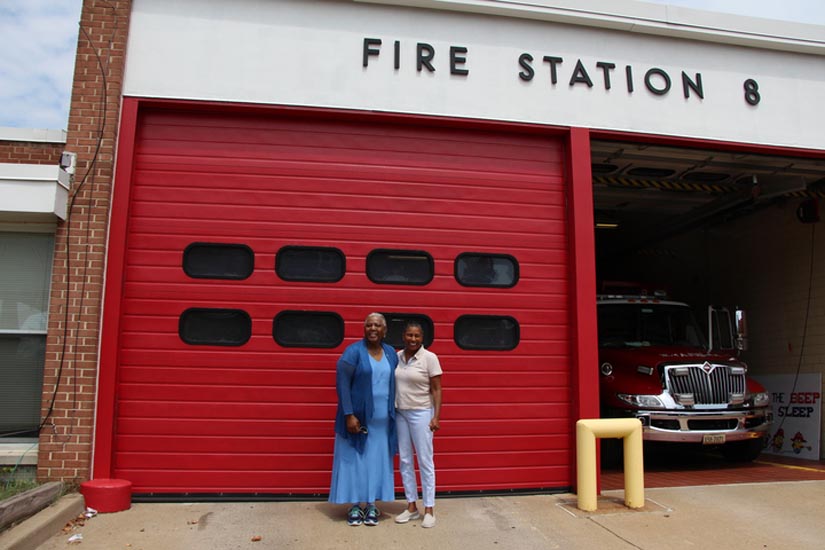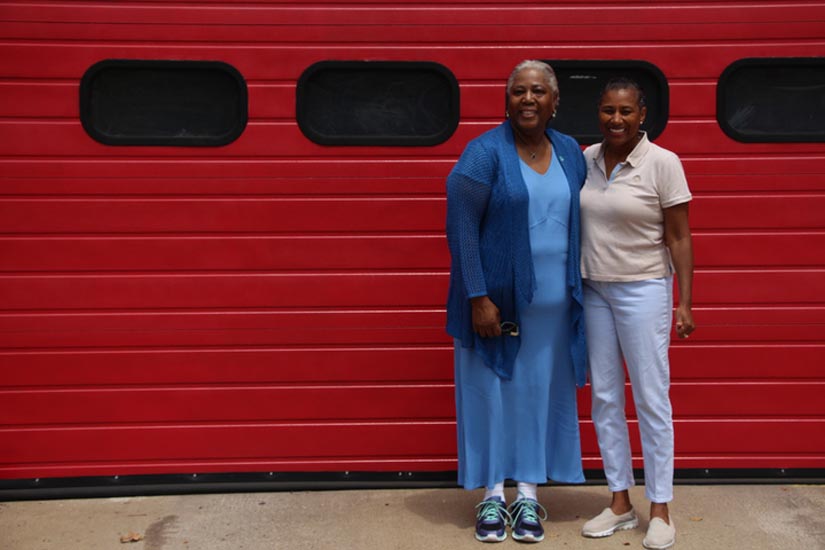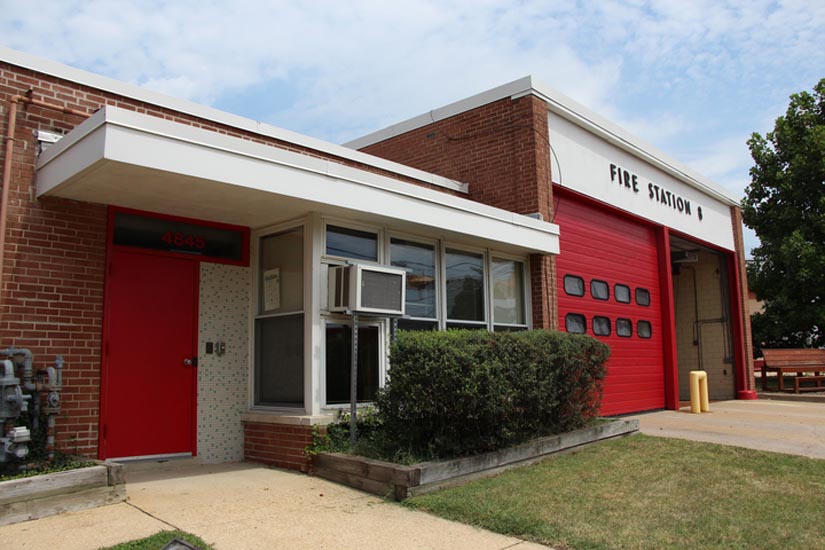Several of the original firefighters of Arlington’s Fire Station 8 were glad to see that the Arlington County Board abandoned a plan to relocate the station, instead voting in favor of rebuilding it on its current site.
Fire Station 8 was the only station in segregated Arlington with black firefighters during the 1950s and 60s. Those firefighters had to work hard just to keep the station running — due to a lack of county funding, they would hold cookouts to raise funds for equipment.
“The community got together, and they sold dinners, fish dinners, chili dinners, chicken dinners, and… they made enough money to buy all the materials and things for a barracks,” recalled Marguarite Gooden, a local resident.
After working on a volunteer basis for years, Captain Hartman Reed and Firefighter Carl Cooper were two of the first three firefighters at Station 8 to receive pay for their work, starting in the early 1950s. (White Arlington firefighters started receiving salaries about a decade earlier.)
Reed and Cooper still live in Arlington, right behind the fire station. They spoke to ARLnow.com about their thoughts on the station’s relocation.
“I just thought, well, it was very wrong about trying to move it out,” Cooper said. “If anything, they should enlarge it and let it remain here.”
In 2014, the fire chief recommended — based on a 2012 consultant’s report — that Fire Station 8 be moved north of its current location to reduce response times for the northern communities. A county-owned parcel of land near Marymount University seemed like a prime candidate.
Captain Reed found that recommendation a little odd, especially given that there was more population density — and thus, more calls — along Lee Highway.
“I recall when I was in Station 8, how few calls we ran up into that [northern] area, and the difference in the calls we ran,” Reed said. “I don’t think the fire department could prove, even though it was a longer run, that they were needed more in that northern area, then they were in the Lee Highway corridor.”
Reed theorized that one of the underlying reasons for the move may have been a desire to place low income housing on the current fire station site. Cooper said he thought “maybe they wanted to get it away from this community” due to some sort of prejudice.
The recommendation to move the station was met with much resistance from both the historically black community surrounding the station’s current site and the community surrounding the stations’s proposed new location.
Kitty Clark Stevenson, the daughter of Alfred Clark — another one of the first paid firefighters at Station 8 — explained that the community felt they were included in the process only after a top-level decision had already seemingly been made.
“We were not respected as a community by the leadership in this county government, which for us was a violation of the Arlington Way,” she said.
Gooden, who is Captain Reed’s daughter, also found that upsetting.
“The thing that outraged me was… we weren’t engaged in the conversation at all,” she said.
After numerous county meetings and the creation of a task force, the county finally decided against relocating the station. Instead, the existing station will be knocked down and a new, larger Fire Station 8 will be built on its current site, which many in the community describe as historic.
“I was excited to hear that it would… remain where it is,” Cooper said. “Very much elated,” Reed agreed.
Gooden was also pleased that the building was being redone.
“I’m excited about them getting the best, the best technology, the best facility,” she said. “And they will better be able to serve the dynamic, very densely populated Arlington.”






